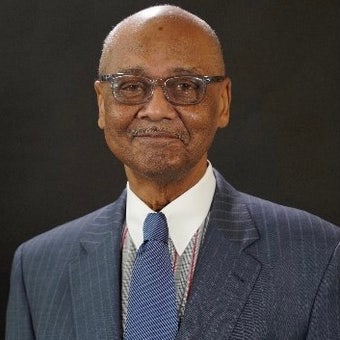Bob Woodson rips BLM: 'Parasites' that migrated from social justice champions to attacking nuclear family
Bob Woodson, Civil Rights Activist, speaks out against accelerating chaos in major American cities, 'where are the voices of dissent of the civil rights movement?'
This year, America’s cities have experienced near-record levels of crime and violence. Philadelphia homicides are nearing an all-time high. Atlanta’s and Houston’s homicide rates are the cities’ highest in more than a decade, and in Los Angeles, the number of murders has increased 25% in one year.
Why is this happening?
First, the coronavirus pandemic has exacerbated poverty, fear and despair.
Second, the push to defund the police has alienated local law enforcement and put the safety of our communities in jeopardy.
Third, the majority of our society has been conditioned to believe that the cause of -- and solutions for -- poverty and other societal issues are beyond their control.
Some of today’s left-leaning political activists and elites, for example, work to keep race as a divisive, front-and-center issue, peddling messages of oppression, victimhood, and anger – which leads to violence.
If we really want our Black communities to thrive, we must take a hard look at why violence in our cities is increasing and what really works to stop it.
DEFUND-POLICE SUPPORTERS TELL BIDEN THEY'RE 'NOT GOING AWAY'
Defunding the police is not the answer. Calling on Americans to rise up in anger is not the answer. Well-intentioned but misguided generosity and lowering of standards are also not answers.
Over the years, I’ve supported local groups that have dramatically, and sustainably, reduced violence in some of the toughest neighborhoods and cities in America.

What I have learned is that solutions are usually found among those closest to those suffering the problem – not necessarily the people with the most university degrees or political titles, but those grassroots leaders who have experienced the issue firsthand. Most have the title “ex” in their biography – ex-drug dealer, ex-convict, ex-gang member. They are effective not just because they understand the problem but because they enjoy the trust and confidence of those they serve and mentor. They are also able to convince people to adopt an attitude of resilience instead of helplessness.
CLICK HERE TO GET THE OPINION NEWSLETTER
In 1998, the Benning Terrace Public Housing complex in Washington, D.C. was a notorious killing field. 53 murders had occurred in two years within five square blocks. When we partnered with a local organization, the Alliance of Concerned Men – a group made up of men who had grown up in the area – we convinced the Terrace gang leaders to agree to a meeting and a ceasefire.
Many ended up joined together as the “Concerned Brothers of Benning Terrace” and seized the opportunity for productive engagement, ranging from graffiti removal and landscaping to serving as peer mentors. There was not a single gang-related murder for 12 years.
More recently, The Woodson Center’s Violence Free Zone program in Milwaukee, Wisconsin engaged 60 local Youth Advisors who provide mentoring and character coaching to more than one thousand students in eleven schools.
Baylor University’s four-year evaluation of the program found that students in the program showed a 9.3% increase in GPA, a 79% reduction in average number of suspension days per month, and a 24% higher rate of graduation than students not enrolled in the program.
We also have worked with mothers of children who have been killed by neighborhood violence. What we hear from them over and over is how they feel unheard and forgotten.
Why aren’t the politicians seeking their advice on how to reduce crime in their communities? What you’ll hear from them is similar to the Gallup survey from August that shows that Black Americans overwhelmingly (81%) want police to spend the same amount of or more time in their neighborhoods. Black mothers of murdered children don’t want to defund the police!
Many of our cities are plagued by the disintegration of the family, lack of economic opportunity, a substandard education system, and an overarching lack of hope. These issues are directly tied to crime and violence.
If we want to decrease violence, America must recognize and expand on indigenous neighborhood efforts – funding innovative solutions that empower the local community on issues of unemployment, teen pregnancy, gang violence, day care shortages and more. The $22 trillion that our government has spent on social welfare programs over the last 50 years has not moved the needle on ending poverty, because top-down solutions often don’t work.
What works is the extraordinary power of grassroots leaders to transform the lives of forgotten men and women in the most toxic neighborhoods.
CLICK HERE TO GET THE FOX NEWS APP
People are capable of being agents of their own uplift. In 2020, the focus has been too much on themes of oppression and not enough on themes of self-empowerment.
Self-empowerment does not mean picking up a gun or burning down a building. It means being a part of the solution instead of the problem, through intentional, internal transformation. And the only way to accomplish this is street-by-street, home-by-home and person-by-person.


